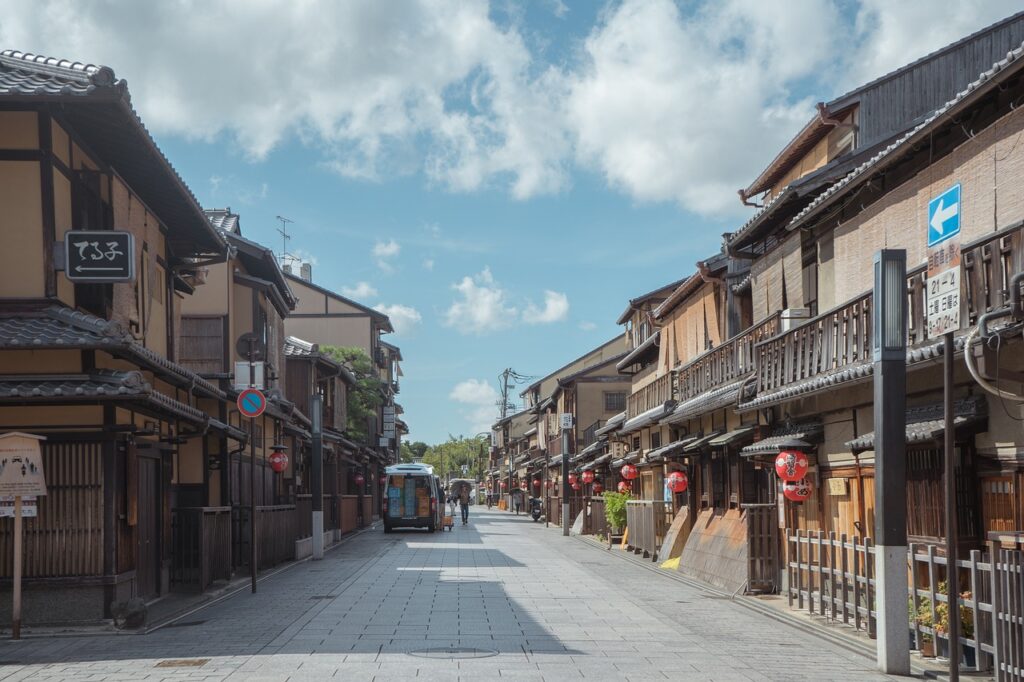10 Reasons to Study in Japan: A Complete Analysis of Education, Employment, and Lifestyle
1. The quality of education in Japan is high
Japan has a world-class education system and excellent educational resources. Many Japanese universities hold important positions in global rankings and offer a wide range of academic subjects and specializations. Japanese education places emphasis on practice and research, nurturing students’ innovation capabilities and practical skills.
2. Offering excellent career opportunities for international students

Japan is home to the headquarters of many well-known companies and multinational corporations, so international students have the opportunity to get exposure to the Japanese job market and participate in internships and vocational training programs. This will prepare them for better career opportunities in Japan and international workplaces. Also, as Japan is facing a declining birthrate and aging population, the government is relaxing its employment policies to make it easier for international students to work in Japan. As long as international students complete their studies normally and have no illegal activities, it is very easy to change from a student visa to a working visa.
3. Scholarships for studying in Japan

・Ministry of Education, Culture, Sports, Science and Technology (MEXT) Scholarship
The MEXT Scholarship is one of the leading scholarship programs established by the Japanese government. This scholarship is available to a wide range of international students, including graduate, undergraduate, vocational school, and Japanese language school students. Scholarship recipients are exempt from tuition fees and receive a monthly living allowance of 150,000 yen. Also included is a round-trip international air ticket and a lump sum upon enrollment. Applicants must have excellent academic records and a certain level of Japanese language proficiency.
・Japan Society for the Promotion of Science (JSPS) Scholarship
The JSPS Scholarship aims to support international researchers to carry out research activities in Japan. There are two types of scholarships, short-term and long-term, aimed at researchers at different stages of their career. Scholarship recipients can carry out research projects at universities, institutes, or laboratories in Japan and receive appropriate allowances and subsidies. Application requirements include holding a PhD or having appropriate research experience, and having an innovative and feasible research plan.
・Japan Student Welfare Scholarship
Japan International Student Welfare Scholarships are scholarships established by governments, companies, and organizations across Japan to help support the living and tuition costs of international students. There are many types of scholarships available, catering to a variety of academic fields and levels of international students. Scholarship recipients can receive subsidies to cover tuition fees, accommodation, food, transportation, and more. Application requirements and procedures for scholarships vary depending on the provider and type, so international students need to choose the scholarship that best suits them.
For more information on how to apply for scholarships in Japan, please click here「日本留学のための奨学金申請方法:お金と心配を節約するための超詳細ガイド」
4. Low tuition fees

Tuition fees at Japanese universities, both public and private, are generally lower than at Western universities. Many universities offer tuition fee reductions, ranging from one-third to a full exemption, and may also provide assistance with living expenses.
If you are thinking about studying abroad in Japan, look here to find the school of your choice with low tuition fees「日本語学校学費情報」
5. You can earn a degree while studying Japanese

You can take the Japanese Language Proficiency Test and various skill tests at any time, and the cost of failing the test varies depending on the test. For example, the cost of the Website Creation Examination is about 2,500 yen. Overall, the test costs are relatively cheap.
6. Learn Japanese in an immersive environment
You will be constantly exposed to Japanese at school and in your daily life. It may be difficult at first, but you will see progress over time.
7. You can earn money while you learn
Compared to other countries, there are many part-time job opportunities in Japan, and international students can earn a living through part-time work. The hourly wage is usually around 800 to 1200 yen, and living expenses can often be covered by self-payment.
If you are interested in studying in Japan and would like to know more, please click here「日本留学生生活と宿泊に関する完全ガイド」
8. Life in Japan is clean, safe, fun and comfortable

・A clean and tidy city
There is not a speck of dust in the city, and even the tires on the cars look brand new. This is partly due to Japan’s geographical location, as it is located on the Pacific Ocean, and the sea breeze and rain wash the city clean.
・Convenient Life
Japan has a high population density and a relatively high rate of car ownership, but the transportation is very smooth. There are 24-hour convenience stores and an extensive transportation network everywhere, making travel very convenient. In addition, Japan’s service industry is very developed, and store clerks are always smiling and polite to serve you.
・Social Order and Manners
In Japan, people behave quietly in public places and try not to disturb others. It is normal to wait in line, and even when it is crowded, you rarely hear honking of car horns.
・Social cohesion
In Japan, group responsibility is emphasized over individual achievements, such as in school sports meets and workplace activities. There is also a culture of silent cooperation in the workplace, where everyone works hard toward a common goal.
9. Enjoy authentic Japanese cuisine
Compared to Japanese restaurants in your home country, restaurants in mainland Japan are cheaper and tastier. However, be aware that many dishes in Japan use pork.
10. Experience a different culture

Japan is a country where diverse cultures intersect. Not only Japanese people but also people from various countries live in Japan and different languages are spoken. Tokyo in particular is a place where the world comes together. Different races, languages, and cultures coexist and each person lives in pursuit of happiness.

